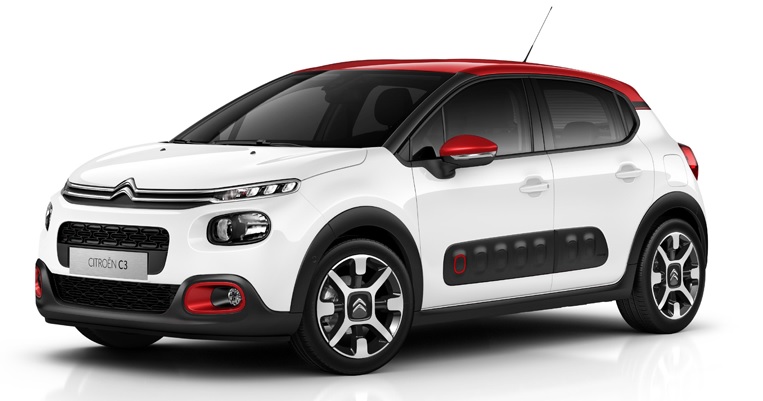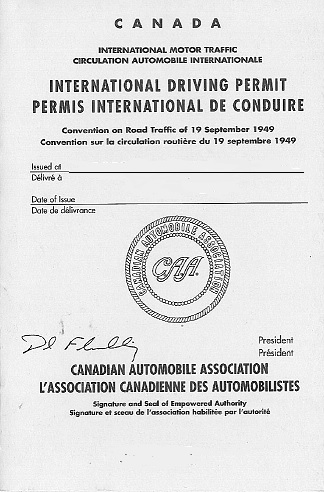
Updated Jun 2022
So you are travelling to Europe and want to rent a car. There are some things you need to know.
Your Driver’s Licence
As you are reading this in English and are going to Europe, you are probably from Canada, the U.S.A., Australia or New Zealand. Your driver’s licence is valid in Europe, But!
Language
Your driver’s licence will be valid in Europe, but if stopped by the police, you will need to provide a copy of it in the local language. So unless you are going only to the United Kingdom, you will need either an official translation of your licence or an International Driver’s Licence. The translation must be done by an official translation firm, not your cousin or friend who happens to speak the language. If you go to more than one country, such as France and Spain, you will need two different translations. These translations are expensive and time-consuming. Forget about them and get an International Driver’s Licence instead.

You will need two passport size photos. Then go to your local automobile club or association. They should be able to provide you with an international licence in about 30 minutes for about $30 (the price depends on your country).
The licence will be good for one year in almost all countries of the world except your own. For example, if you purchase a licence in Canada, then it is not valid for driving in Canada.
Size Matters

The size of the car matters. The larger it is, the more it will cost to rent. I would skip the tiny compact cars. Very little room. Unless you have more than two people, the second smallest car is the best bargain. They are suitable for two people with luggage or four people with very little baggage. If you need a bigger car or want something fancier, you will pay considerably more for the privilege. Get one with four doors for easy loading things in the back, even with only two passengers.
Left or Right
One thing to consider is your ability to drive on the opposite side of the road you are accustomed to. If you come from Australia or N.Z. and only go to the U.K., this won’t be a problem. The same applies if you are coming from North America and not going to the U.K. If you are a good driver, this problem can be overcome by simply driving very carefully and being alert.
A bigger problem is driving on the left or right with a car not built for the side of the road in use. If you are going to both the U.K. and mainland Europe, I suggest that you rent one car for the right side of the road and turn it in before going to the U.K. and rent another in the U.K. that was built for driving on the left side of the road. Driving with a vehicle that was not intended for the side of the road in use can be difficult.
G.P.S.
Make sure you get a vehicle with G.P.S. This will make your driving much more straightforward and avoid getting lost. Cars with G.P.S. cost a little more, however. You can get a vehicle with G.P.S. built into the dash, or you can rent a separate plugin G.P.S. I recommend the one built into the dash as it is easier to see while driving, and renting a separate G.P.S. system is more expensive. Modern G.P.S. systems even tell you the current speed limit and other information.
Insurance
This is a big one. First, make sure that you understand the insurance terminology in Europe. Basic third party insurance is usually included but ask to make sure. This covers damage to other cars and people you may hit but not the automobile you are driving, yourself or your passengers. You need SCDW (super collision damage wavier) to cover your vehicle. Theft insurance is also a good idea. You will also have the option of buying insurance for glass and tires (tyres) and insurance for theft of personal belongings from the automobile. Renting a car in Europe is relatively cheap, but it starts getting expensive by the time you add all this insurance. However, if the vehicle gets damaged and you don’t have this insurance, you will be paying a lot more.
Breakdown or Accident
Each rental company has its policies on what you must do in the event of a mechanical breakdown or an accident. For example, ask if roadside assistance is included or if you must purchase extra insurance for that. Be sure to ask what you must do in the event of an accident. Failure to fill out the company’s proper forms and procedure policy may result in you having to pay for damage to the other vehicle, even if you have insurance.
How Old are You?
Ask about the company’s age policy. There will be an extra charge if you are under or over a certain age, or they may refuse to rent you a car at all. Not many companies have an upper limit, but almost all have a lower age limit of about 26 years.
What is the “Excess”?
Ask about any and all excesses. An excess is an amount you must pay over and above the cost of rental and insurance. For example, if you damage the car and you have insurance, then the insurance will pay for most, but not all, of the cost of repairs. The difference that you must pay is called the “excess”. In North America, this is called the “deductible”. The more insurance you purchase, the smaller the excess will be. Insurance with zero excess will be costly. Perhaps $1,000 excess is an acceptable maximum amount to be paid in the event of an accident.
Options
You may wish to pay for some of the optional extras not included with the rental fee.
An extra driver – Your rental fee and insurance is for one driver only. There may be an additional charge for a second driver. If you have an accident and the registered person was not the driver, the insurance will not pay.
Child seats – Seats for small children can be rented at an extra cost.
Fuel
Be sure to return the vehicle with a full tank of fuel. Failure to do so will mean that the company can charge you whatever they wish for the fuel; often double what it is worth plus a service fee for getting it.
Returning the Vehicle
Ensure that the vehicle is clean when you return it, or you will be charged an expensive cleaning fee. In addition, the car will be inspected for damage. Before renting the vehicle, take photos of any pre-existing damage to prove that you did not cause it.
Terminology
C.D.W. – Collison Damage Waiver (basic insurance for damage to the rental vehicle)
SCDW – Super Collision Damage Waiver. (comprehensive insurance for the rental vehicle.
T.W. – Theft Waiver (theft insurance for the vehicle but not contents)
L.D.W. – Loss and Damage Waiver (a combination of the above insurances)
Conclusion
This information applies to most countries and rental car companies in Europe, but every country and company has its own rules. Consider all the information provided here, and then check with your rental company to see if their policies are different. Finally, drive safely and have a good vacation.
Please let us know if you have any information to add to this subject.